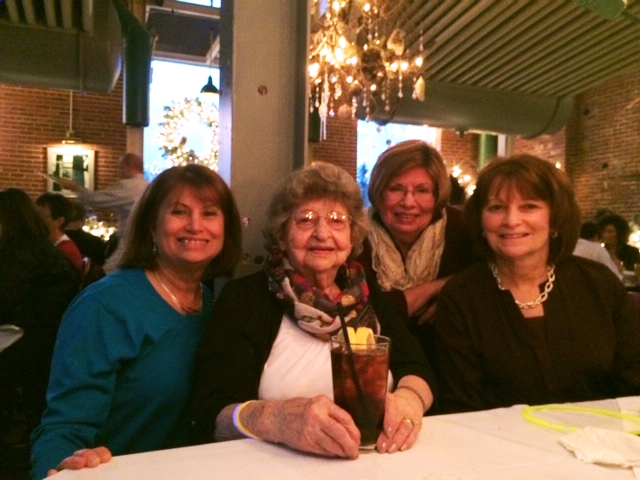As if the pandemic hasn’t been difficult enough on the average person, imagine having dementia combined with moderate-to-severe hearing loss. This was the case with Jean Peterson. Jean was 95 years old, lived in a care facility and commonly wore hearing aids to help her communicate with caretakers, friends and family. The hearing aids helped, but only to a certain point – and that was prior to COVID.
“When she actually wore her hearing aids communication was okay, but even then, it was a challenge because dementia brings its own cognitive difficulties,” explains Peterson’s daughter, Bonnie Whitebread. “Even in the best of circumstances, we would have to be physically near her and give her visual cues.”
Fast-forward to spring of 2020 and long-term care facilities are hit hardest by the coronavirus outbreak. While scrambling for protective equipment, many nursing homes across the country banned family visitors, cutting off in-person communication entirely. Peterson’s facility was no different. As time passed, Peterson’s family was eventually allowed “window visits” to see and talk to her through the care facility window.
“The first few visits were a disaster,” says Whitebread. “My sister (Anne Snyder) and I had to wear masks while seated on the other side of a window from our mother. She couldn’t begin to hear us and since we were wearing masks she had no visual cues either. Not only could she not hear what we were saying, without being able to see our lips she didn’t even know if we were speaking. It was so frustrating. We resorted to bringing cardboard signs to tell her we loved and missed her. “
“We thought we could conquer the problem by using the Bluetooth microphone we had for mom’s hearing aids. It was when I was instructing staff how to pair mom’s hearing aids to the transmitter that staff discovered her hearing aids were missing!”

Left to right: Anne Snyder, Jean Peterson, Karen Kolet and Bonnie Whitebread. Bonnie Whitebread and Jean Peterson
It appeared that there was no hope of Jean hearing her family speak to her on these distanced visits.
Fortunately, Whitebread, a former audiologist, had a Williams AV Pocketalker lying around. “I thought to myself, we’re going to try this,” says Whitebread. “The staff let us slide the sanitized amplifier and headset through the window. I preset the volume for mom and we had an extension cord for the mic so we were able to speak into the mic from outside the window. It was like a miracle happened.” Whitebread and her sister were finally able to say “We love you! We miss you!” – without screaming multiple times through a window or holding up signs.
“It was an entirely different experience,” says Whitebread. “We were able to converse, to connect. It was just amazing to finally be able to reach her”
Whitebread and her sister took it a step further. Because it’s difficult to have an extended conversation with someone with dementia, they decided to try music. “We started singing with her – singing hymns. She knew all of the words and readily joined in! My sister and I had to read the lyrics, but she knew them all. We could use the Pocketalker with her and she would just sing along with us. It was so moving – for everyone.”
Unfortunately, after about a month or so, Whitebread received a call that things weren’t going very well – her mother didn’t have a lot of time left. The family brought her home and used the Pocketalker to try to communicate as Jean was slipping away. “We read mom’s favorite bible passages and sang her favorite songs. Maybe we were able to reach her; maybe not. But it made us feel better to know we had done our best to try to reach her. When the minister came, he used the Pocketalker for his readings and words of consolation.”
Whitebread adds, “Our visits changed so much from when we first went to see her during COVID. We were allotted 30 minutes for a window visit and after ten minutes of screaming, we didn’t know what else to do. Once we started using the Pocketalker, the 30 minutes would end and mom would be saying, “don’t go, we’re not done!” She was engaged. She was connected – when before she hadn’t been. Pocketalker was an absolute Godsend.”
Bonnie Whitebread received a Bachelor of Science in Education of the Hearing Impaired at Pennsylvania State University, and a Master of Science in Audiology from Bloomsburg University. After teaching the deaf and then practicing in a hearing-aid clinic for several years, she worked in educational audiology for school systems and intermediate units fitting remote technology and FMs on school-aged children and preschoolers.
“I’m a firm believer that hearing aids are the best remediation for most people experiencing hearing loss. But a device such as the pocket talker has its place . In the hearing aid practice we always had a Pocketalker handy for those situations where you just couldn’t communicate with a person in a civil way unless you had a quick and easy way to amplify the conversation. “. Whitebread adds “ There are other situations where the pockettalker was helpful. We’d get phone calls from people saying, ‘my mom’s dying, and we need a way to talk to her.’ You’re not going to put hearing aids on someone with a week to live.” This is a relatively cheap solution – for a little over $100 we had a system that was worth thousands to us at the end. Thank God the Pocketalker was there.”
